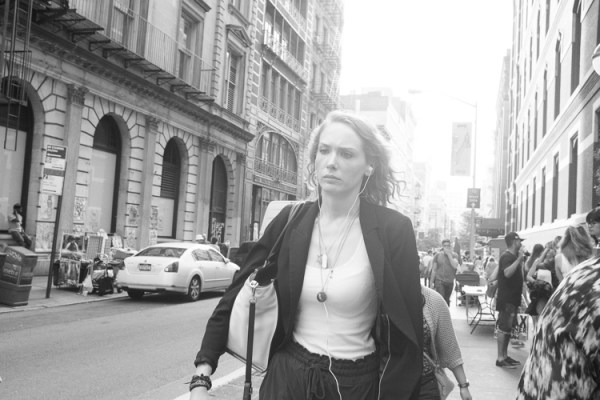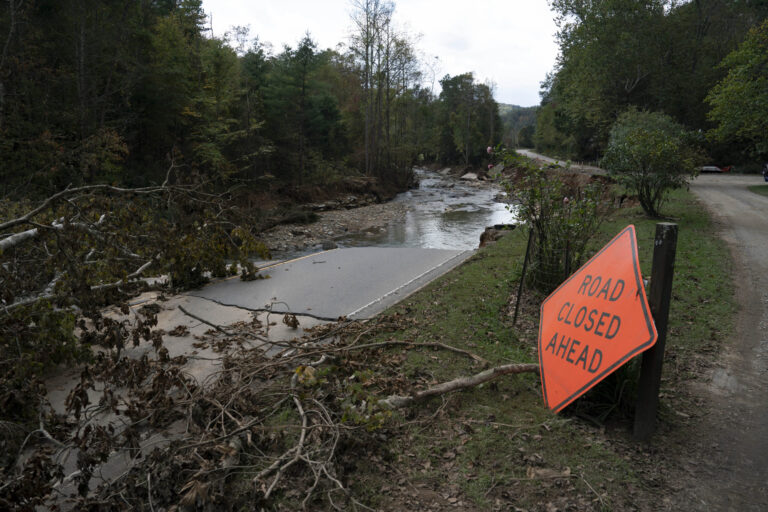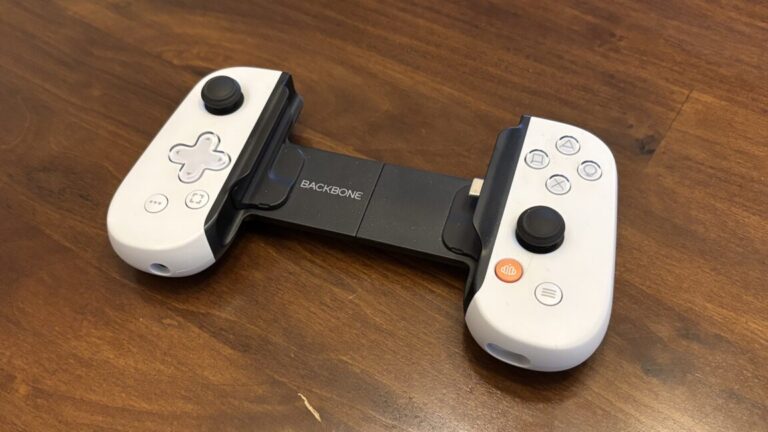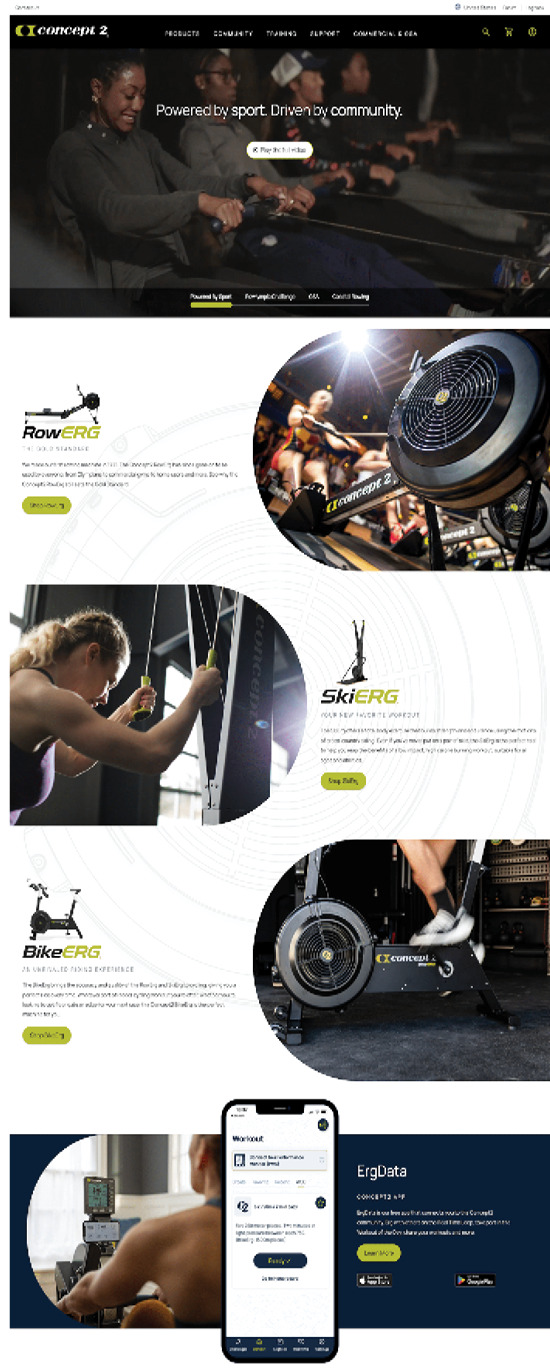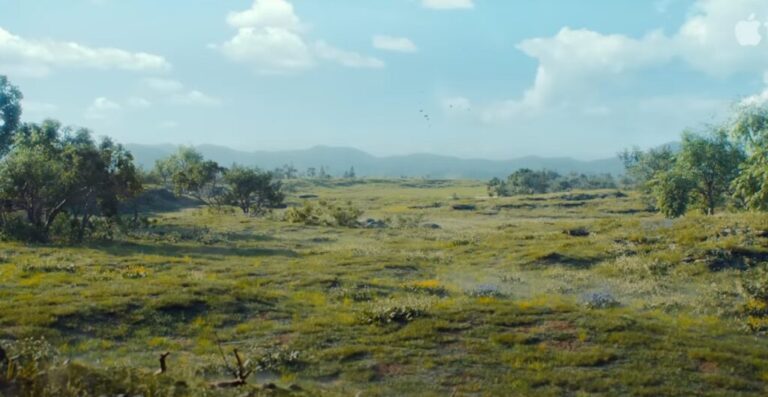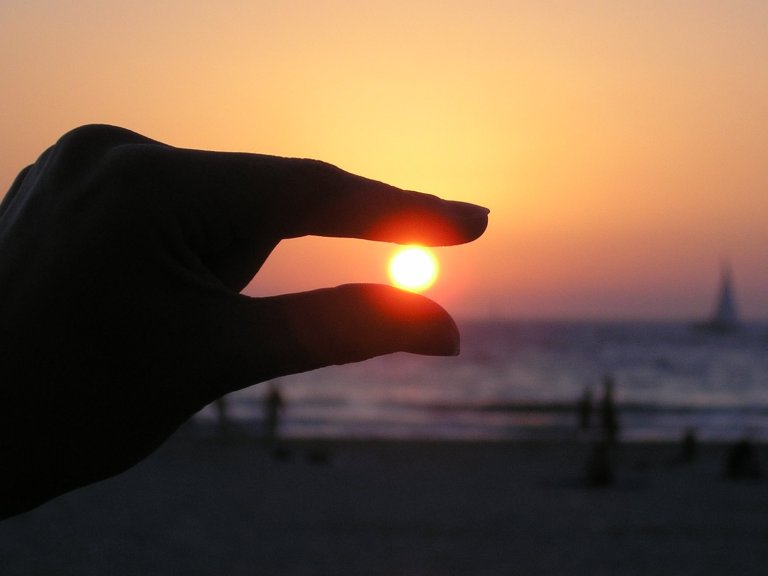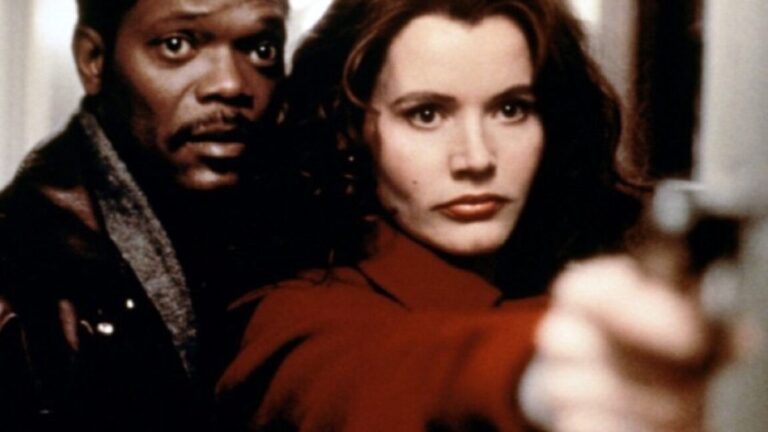7 Tips for Overcoming Nerves in Street Photography
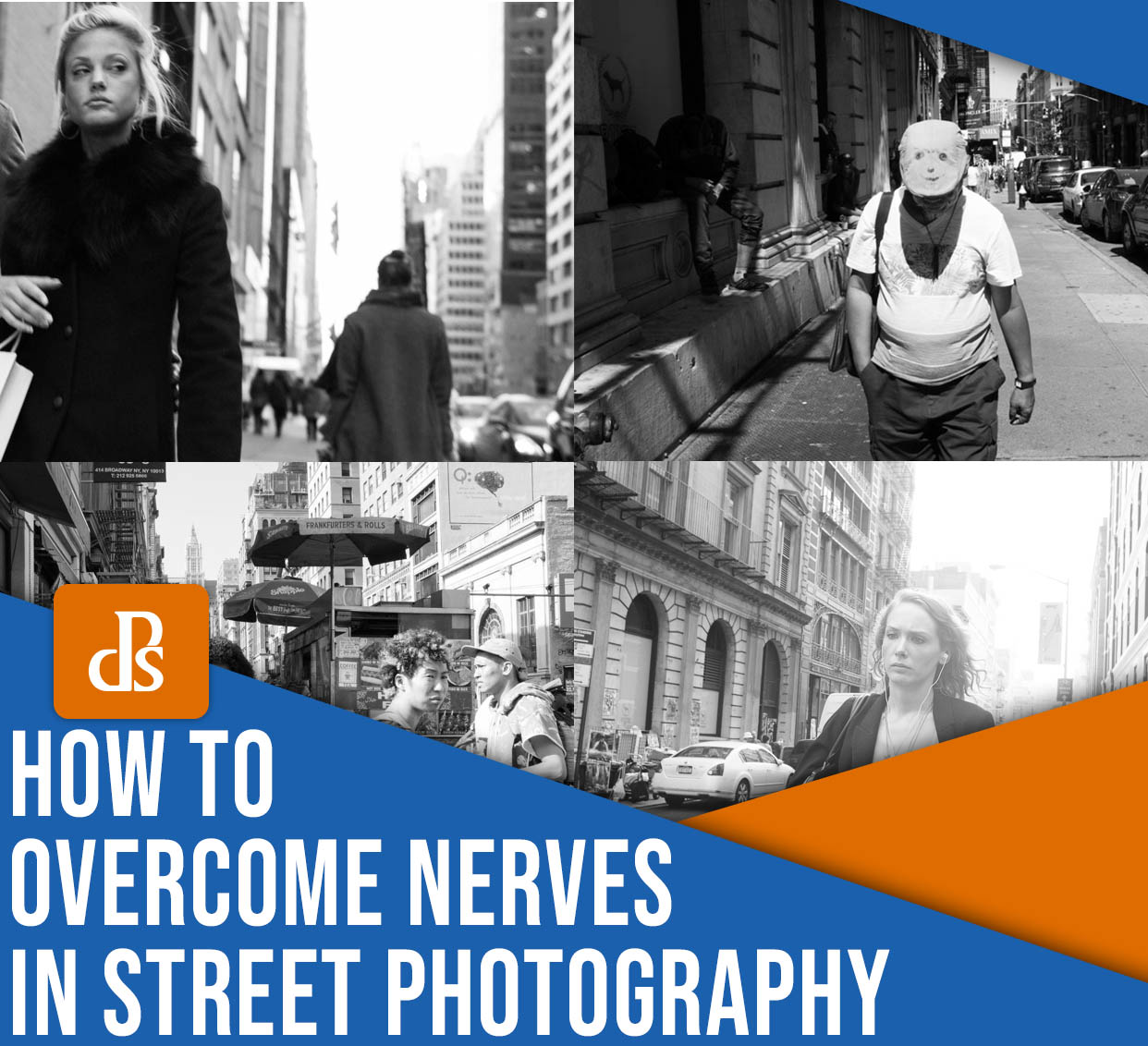
Capturing good street photography can look deceptively easy. All you have to do is be in the right place at the right time, get a little lucky, and – bam! – you have an incredible, one-of-a-kind photograph. Right?
Unfortunately, the reality is very different. When you’re out on the street with your camera, people are looking at you and reacting (often suspiciously). Even the people you aren’t photographing feel like they’re watching from the side. You may feel like a bundle of nerves; you freeze, you struggle to put the camera to your eye, and creating beautiful street shots suddenly isn’t as exciting as you imagined.
Fear stops plenty of would-be street snappers before they get off the ground, and that’s a shame. With the right approach, overcoming your nervousness really is possible. Fortunately, I’ve been photographing on the streets for years, and in this article, I explain my best techniques to work past your street photography fears. That way, you can genuinely enjoy taking great street shots without feeling paralyzed by anxiety.
Sound good? Then let’s dive right in, starting with my first tip:
Table of Contents
- 1 1. Think about what you’ll say if someone stops you
- 2 2. Choose your subjects wisely
- 3 3. Go to a busy place and let people come to you
- 4 4. Try some street portraiture
- 5 5. Keep your camera against your eye
- 6 6. Don’t shoot from the hip
- 7 7. Create a routine
- 8 Overcoming nerves in street photography: final words
1. Think about what you’ll say if someone stops you
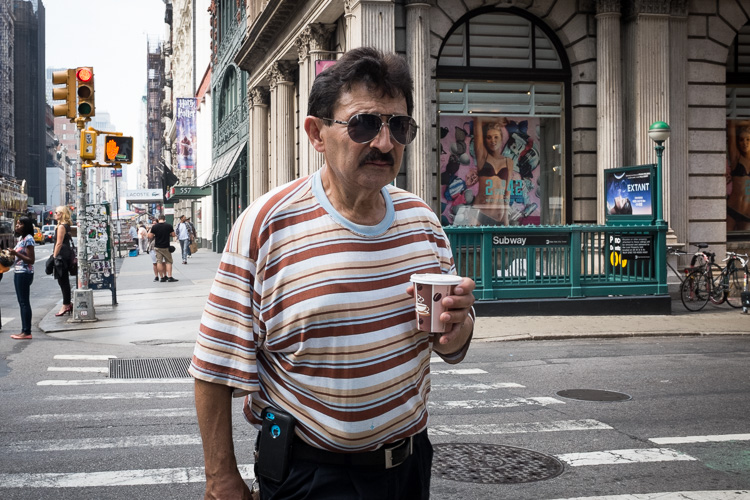
Beginner street photographers are often afraid of being stopped, questioned, and potentially berated by their subjects, which in turn makes them nervous every time they try to capture a photo.
So what’s the key to handling this anxiety? Coming up with a plan.
In my experience, you’ll be most comfortable knowing exactly what you’ll do if someone engages you after you take their photo. (This rarely ever happens to me, but when it does, I’m confident that I can handle myself.)
First of all, if someone notices you, I recommend smiling. Acting confident and making it clear – through body language – that you’re not doing anything wrong will make the subject more comfortable. If you look sneaky or sheepish, they will read it as guilt and be much more inquisitive.
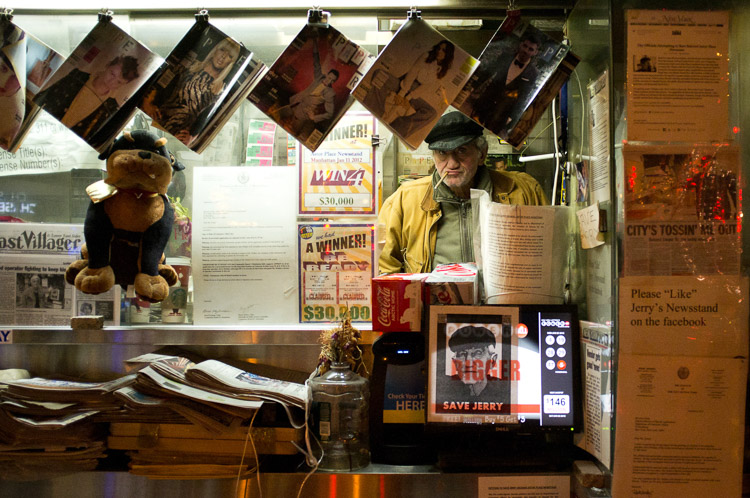
Second, if someone asks you why you took their photograph, tell them the truth. I always say that I am a photographer doing a cultural project on the people and streets of New York, and that I thought they looked fabulous. Flattery will help you get out of most situations!
You might also offer to email them the photograph. Explain that you find people and fashion just as interesting as the buildings. If the person still seems uncomfortable or angry, apologize and say that you didn’t mean to make them feel bad. Tell them that you’re happy to delete the photograph. That will defuse most situations.
2. Choose your subjects wisely
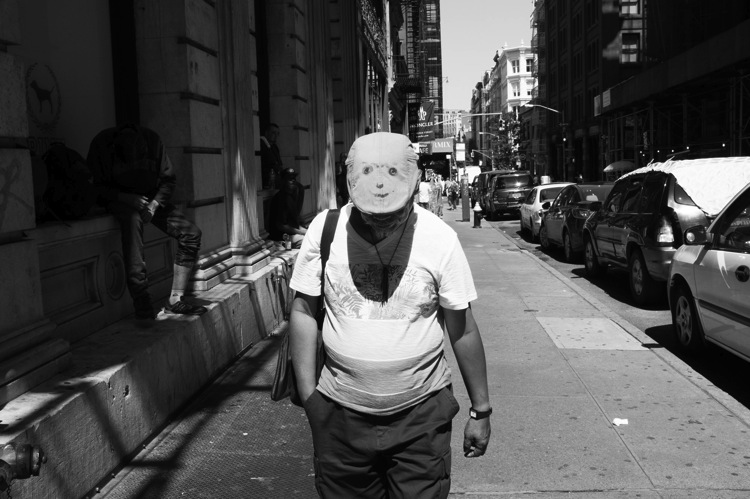
Most people will never challenge you for photographing them in public. And of those who do challenge you, most will be at least somewhat placated when you explain yourself.
However, it’s important to recognize that some folks just don’t wish to be photographed – and by avoiding these people, you dramatically decrease your chances of discomfort.
Here’s my advice: If someone looks angry, stressed, or scary, do not photograph them. In fact, you should resolve ahead of time to avoid snapping any photos of people who make you feel uncomfortable. Not only will this approach make things much easier for you, but it’ll also make you feel a lot less nervous when you’re out with your camera.
3. Go to a busy place and let people come to you
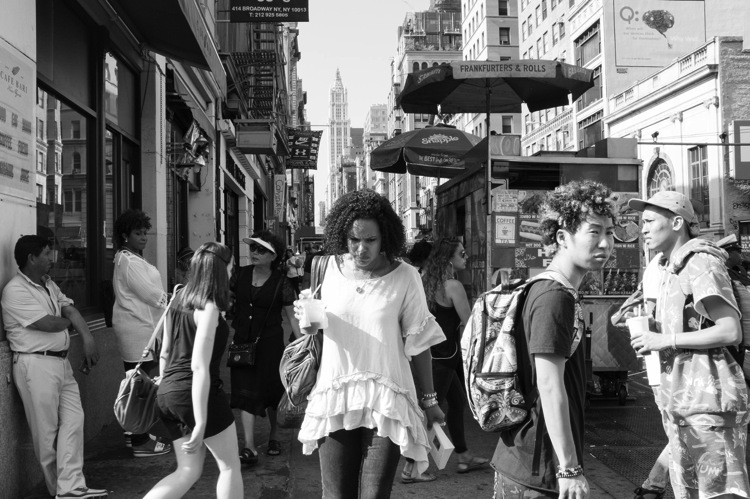
This is one of my favorite street photography approaches, and it works especially well if you’re feeling anxious or scared.
You see, while street photography can be done in areas without many people, one of the best ways to ease your fears is to photograph where a lot is going on. Go to busy street corners, markets, or festivals. Go at times when things are happening. Follow the action.
If you’re part of a huge crowd, it’ll be a lot easier to blend in, and most folks won’t notice you at all. They’ll be too busy dealing with everything else that’s going on, so you’ll be able to capture some photos without the fear of being challenged.
And if you’re still feeling uncomfortable, take this approach a step further by picking a spot, standing with your camera, and letting things happen around you. Make sure the area you choose has plenty of activity, and if you like, you can frame up your photo in advance. That way, when the right person walks through, you can grab the perfect image.
Remember: You do not always have to walk around in search of a photograph! By staying in the same location, you’ll be quick to notice moments as they occur, plus people will be entering your space instead of you entering theirs. You’ll feel far more relaxed, and your photos will turn out significantly better.
4. Try some street portraiture
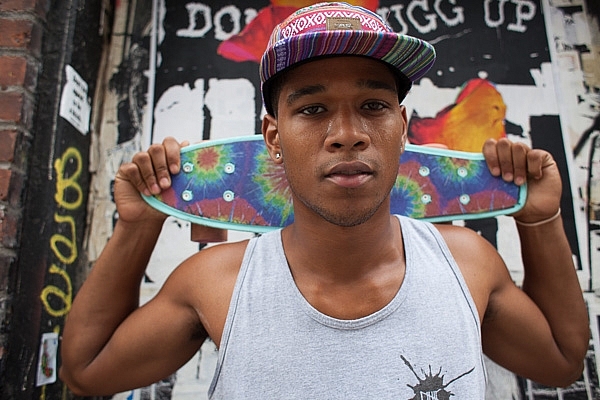
When you first hit the streets for the day, why not conquer your fear of strangers all at once by capturing a few street portraits? Stop someone, tell them they look great and that you’re doing a project on people in the area, and ask if you can take a few quick photographs.
Once you get someone who agrees, don’t just capture a couple of quick photographs, mumble a thank you, and disappear. Instead, interact with them! Make conversation as you take photos, and capture them from a handful of angles and even in a few lighting scenarios. Compliment them and make their day.
Doing this will make both you and the subject happier, and it’ll help remove the creepy feeling that you might get when doing street photography. Plus, once you’ve already photographed someone from up close – and they left happy – you’ll be a lot less reluctant to photograph other passersby. Make sense?
5. Keep your camera against your eye
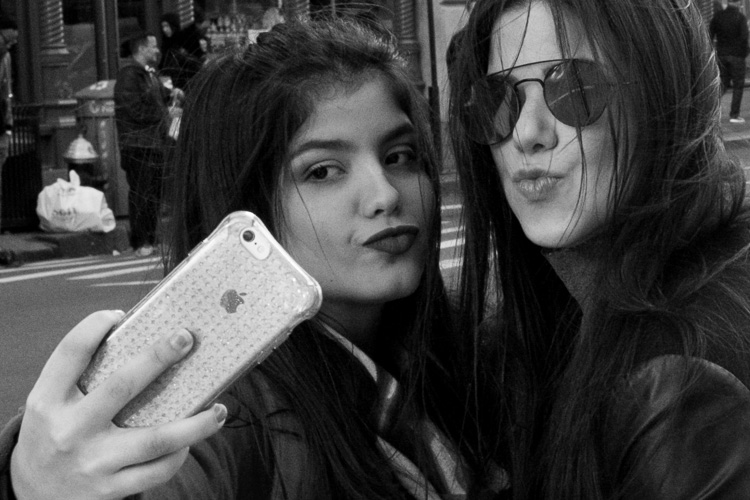
As photographers, after we take a picture, our instinct is to take the camera away from our eye just slightly. Everyone does this, and it’s normally a good thing; for instance, it lets a portrait subject know that you’ve captured a shot!
However, when you’re trying to photograph without folks noticing, this move – taking the camera away from the eye – is the main thing that’ll tip your subjects off. So instead of shooting and then letting the camera fall, keep the camera to your eye as the subject passes by. They’ll think you’re just photographing the background and that they’re simply walking through your scene.
This way of shooting works well in busy, touristy areas. However, in areas with fewer people, you may need to change it up a bit. Here’s my advice:
Instead of aiming your camera at a subject right away, aim it at the building above or a scene off to the side of them. Wait for the subject to approach. Then, at the last second, act like you already captured the photograph and are moving your camera down – as you actually take the shot.
It cannot hurt to play a role as well. Some of the best street photographers are fantastic actors; they have a way of looking especially dumb with their cameras. They furrow their brow and act like they don’t know how to use the camera or are testing it out, and they pretend not to notice that a person is right where they are photographing. Some even act like tourists! It’s deceptive, yes, but it’s harmless and it works.
6. Don’t shoot from the hip
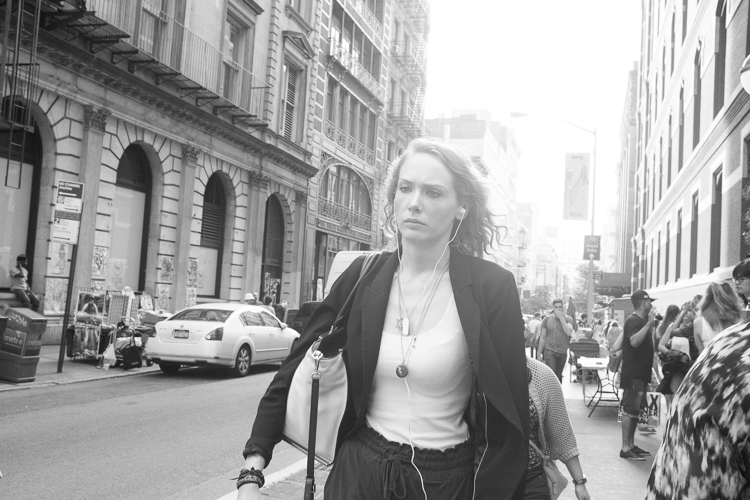
Shooting from the hip is an important street photography technique. The idea is to fire the shutter button without ever putting the camera to your eye; that way, your subject has no idea that you took their photo.
(I shoot from the hip about 30-40% of the time, but I do it with my camera right below my eyes, rather than down at my waist.)
Shooting from the hip is extremely useful, especially if you’re capturing a moment you desperately want to keep candid. But if you’re just starting out and you’re feeling nervous, I’d actually recommend staying away from this technique.
Why? In my experience, it can make you more uncomfortable in the long run as you’ll always feel like you’re sneaking around. It can also become too much of a crutch. When you’re just starting out, it’s generally best to conquer your fears rather than avoid them.
Bottom line: You need to learn to put the camera to your eye so you can get good photographs and so you can improve your confidence. Force yourself to avoid shooting from the hip as much as possible.
Then, as you get more experienced, you can experiment with working from the hip more frequently.
7. Create a routine
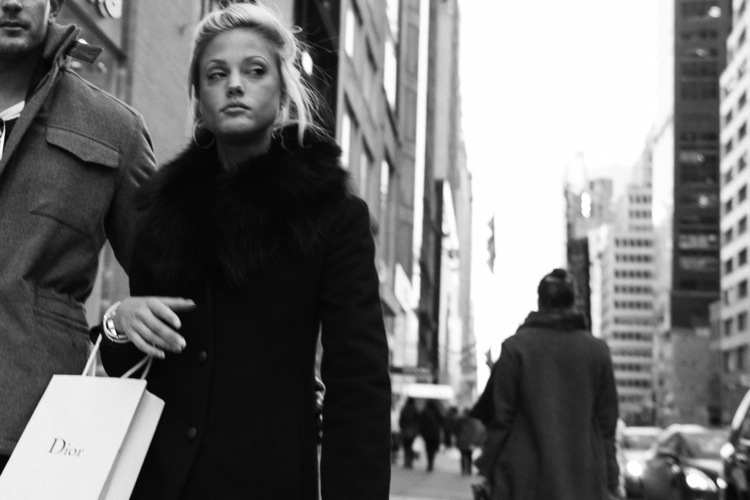
While all the tips I’ve shared above are certainly helpful, nothing will get you more comfortable out there than shooting frequently. Even if you’re only shooting ten minutes here or there, try to not go too long without bringing out that camera.
Like any skill, if you don’t keep photographing people and getting out of your comfort zone, you’ll start to become rusty, and you’ll start to feel self-conscious again.
So turn your photography into a routine, even if it is only once every couple of weeks, and you will become much better!
Overcoming nerves in street photography: final words
Now that you’ve read all of this, you’re ready to head outside and conquer your fears.
If you’re feeling nervous, that’s normal. Just steel yourself and go! Put a smile on your face, photograph some people, and try to enjoy the experience.
Now over to you:
How do you handle your street photography fears? Do you have any tips or strategies that we missed? Share your thoughts in the comments below!
